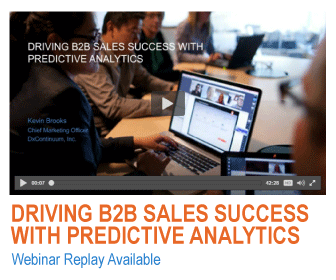Sales and marketing in many companies are at odds with each other. Some of the causes of this conflict have been documented in articles like HBR's "Ending the War Between Sales and Marketing." The article, though a bit dated, has a core element of truth even today, even after many sales and marketing organizations have implemented Sales Automation and Marketing Automation tools. Part of the problem is that marketing wants to drive engagement with prospects, whereas sales is more concerned with conversion.
Marketing, through the use of marketing automation, has become much better at quantifying engagement by tracking activities such as who visited a website, responded to email, downloaded what marketing asset, downloaded which product, etc. Marketing also computes a lead score by assigning points to each kind of engagement in order to model prospect buying behavior and passes on to sales only the leads that cross a threshold of engagement, aka Marketing Qualified Leads (MQL).
However, what we have seen with the customers we have worked with is that sales organizations get more leads from their own and their partner’s prospecting activities, and the qualification rates of such leads tend to be materially higher than the qualification rates of MQLs. No wonder sales teams still say that the leads provided by marketing are not great and that marketing budget is better spent hiring more sales people. They will continue to say that until there is less of a gap between engagement and conversion.
The crux of the matter is that engagement as measured by activities may not always positively correlate with conversion. For example, one of the customers we are working with told us that for some of their products, things like downloads that traditionally indicate very strong engagement and therefore higher lead quality, were actually negatively correlated with conversion. Meaning, for this company, the fact that some of their prospects downloaded their product meant that they were not actually likely to buy from them, and continue to use the free version.
What is worse, such a phenomenon may vary over time, geography, and a variety of other customer characteristics. Something that a simple rule-based lead score that most marketing automation systems have may not be able to capture effectively.
What we have been able to do for this customer is create a predictive lead score that was not just a measure of engagement, but in addition, a measure of whether the lead will qualify based on about 30 different factors from within their marketing automation tool and elsewhere. Using this model, we were able to identify many additional leads of very high quality that given the rate of qualification of their leads more than doubled the number of opportunities generated from the leads in their marketing automation tool. Imagine doubling the impact of your investment in marketing automation very quickly.
Odds are that this would go a long way to building a stronger working relationship between sales and marketing while delivering solid results to the top and bottom line.





